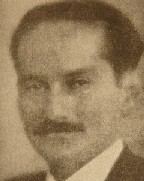The Workers' Party (Spanish: Partido Obrero, PO) was a Bolivian left-wing-socialist political party.
Spanish, or Castilian, is a Romance language that originated in the Iberian Peninsula and today has over 450 million native speakers in Spain, the Americas and a small part of Africa. It is a global language and the world's second-most spoken native language, after Mandarin Chinese.

Bolivia, officially the Plurinational State of Bolivia, is a landlocked country located in western-central South America. The capital is Sucre, while the seat of government and financial center is located in La Paz. The largest city and principal industrial center is Santa Cruz de la Sierra, located on the Llanos Orientales, a mostly flat region in the east of the country.
A political party is an organized group of people who have the same ideology, or who otherwise have the same political positions, and who field candidates for elections, in an attempt to get them elected and thereby implement the party's agenda.
The Workers' Party was founded on November 23, 1937 by the leaders of the trade union Confederation of Bolivian Workers. The leaders of the Workers' Party were Waldo Álvarez España, Eduardo Arze Loureiro, Julio Ordóñez, Federico González, Luciano Durán Böger, Luis Peñaloza and Román Vera Álvarez. [1]

Luciano Durán Böger was a Bolivian poet, writer and politician. Son of Luciano Duran Pérez and Aurora Böger Rivero, was born in 1904 in Santa Ana, capital of the Yacuma province of the Department of Beni in Bolivia and died in 1996 in the city of La Paz.
The Workers' Party was associated with the revolutionary government of Colonel Germán Busch Becerra (1937–1939). For the 1938 congressional elections, the Workers' Party was the component of the pro-military Socialist Single Front. [2]

Germán Busch Becerra was a former Bolivian military officer, hero of the Chaco War, and president of Bolivia between 1937 and 1939. Busch also served as president for three days during May 1936.
Socialist Single Front was a Bolivian electoral political alliance of left-wing and socialist political parties and organizations.
The Workers' Party did not long survive the suicide of Colonel Germán Busch.









